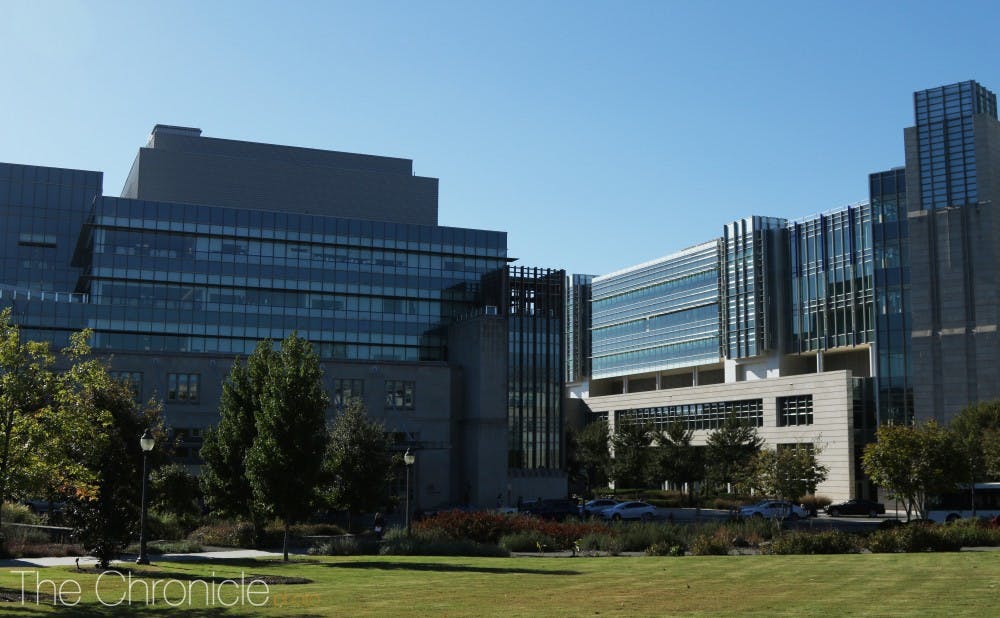Three years ago, the Durham Office of Community Safety, Restorative Justice Durham, North Carolina Central University Department of Social Work and Duke School of Medicine each identified a growing gun violence crisis in Durham.
The institutions recognized that there was a missing component in previous efforts to reduce gun violence: that there wasn’t an emphasis on helping gun violence survivors tell their stories.
With a common interest in mind, the four groups began to collaborate on ways to address the growing gun violence rates in Durham, and this gap.
The product of the research is a pilot program called Prescriptions for Repair (P4R), a project seeking to prevent gun violence by helping survivors share their stories through non-judgemental group listening sessions. After two years of research and requests for funding made to the City of Durham, the pilot began in August 2022 and is set to conclude at the end of October.
One of the directors of P4R is Henry Rice, professor of surgery, pediatrics and global health. He says his frustration with the rising rates of gun violence crime and the way it impacts youth compelled him to lead the project.
The program emphasizes restorative justice, a psychological and legal approach to crime intervention, and an approach Rice feels needs to be further addressed within the existing healthcare system.
“At Duke Health, we're really good at patching people up and sewing things that are bleeding and in restoring their physical health,” Rice said of Duke Health’s ability to provide medical care to victims of gun violence. But experiencing gun violence leaves a whole host of other mental and social damage, according to Rice.
“To be the victim of intentional harm is incredibly challenging to yourself — and over time, if it happens again and again and again like we live now in Durham … it just destroys your social structure in the community. We don't do good as a health system in addressing this.”
Restorative justice is a holistic approach to crime intervention that dates back to Indigenous and Abrahamic religions, according to P4R’s report to the Durham City Council. Traditional restorative justice approaches involve both victims and perpetrators of crimes sharing their stories and communicating with one another to reconcile issues.
P4R uses “a small portion” of the restorative justice lens to walk survivors and their loved ones through “structured listening sessions” mediated by a community facilitator, Rice said. Rather than reconciliation, the program focuses on meeting the mental health needs of victims and their loved ones.
“We bring somebody who was harmed by a crime into a safe space … where everybody is free and empowered to share thoughts and we ask them a series of fairly simple, straightforward questions and they tell their story,” Rice said.
He said that the lessons learned from the P4R project can be summarized into four main themes.
“The first is that there is inherent value to listening to survivors through a program,” Rice says.
There aren’t adequate opportunities for people to share their stories in Durham, so the fact that P4R can provide one is itself an “enormous value” to a survivor of gun violence, he added.
The second is that race impacts the experience of victims of gun violence. In the report published by the leaders of P4R, the program found that nearly all participants cited race and the challenges facing the Black community in their personal experiences with gun violence.
The program also showed Rice that gun violence prevention should focus on youth, and that sustainable gun violence prevention measures require new thinking within preexisting healthcare institutions.
“Most of the literature on gun violence and gun violence policy and gun violence prevention and gun violence harm comes from experts and from population-based studies. It doesn't really come from the voices of survivors,” Rice said. “Much of what [participants] said amplified and reinforced what experts and population-based studies have thought, and some of which contradicted it.”
Although the program is set to conclude on Oct. 31, Rice hopes that P4R will provide a framework for a sustainable gun violence prevention program.
“There is clearly a need and a role for a restorative justice-based framework to help support victims of gun violence and survivors. To do this in a sustained way, in a way that's going to be enmeshed with our community and our health system’s structure, it's probably best to develop this and center this within a government and public structure,” he said.
To support the lessons learned throughout the program’s pilot, the collaborators have suggested creating a new department within the Durham city government.
Get The Chronicle straight to your inbox
Sign up for our weekly newsletter. Cancel at any time.
“We are discussing with local leaders to develop a government-based Office of Survivor Care (OSC) for gun violence survivors and their families,” the report reads.
The OSC would provide support to survivors, listen to their experiences and foster connections from academic, public and private groups.
“What the survivors, what our participants, told us is that much more than the reconciliation needs, they strongly favored their personal needs for support, for talking, for therapy, for safe spaces,” Rice said. “If we believe what survivors tell us, we need to refocus our resources on what they are saying are their needs to recover.”

Claire Cranford is a Trinity sophomore and features managing editor for the news department.

